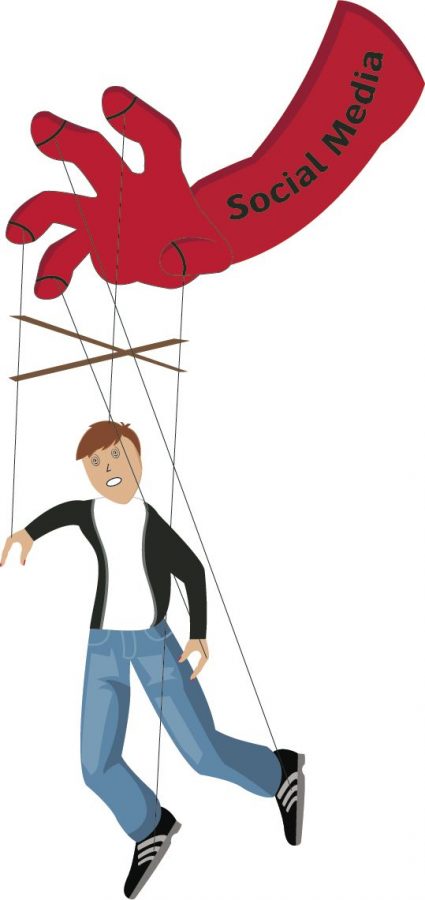OPINION: Peeping Mark wants Facebook to take over your home
OPINION: Peeping Mark wants Facebook to take over your home
October 15, 2018
From the bathroom to the living room, Facebook has invited itself into homes with the Oct. 8 announcement of Portal, a home camera with a built-in microphone designed for easy video calls. The announcement stated the calls are secure, and that Facebook doesn’t listen, view or keep call content. Don’t be fooled by the charade, though; we should all be very, very scared.
Humans are hardwired to be curious and seek new information. It’s an instinct powered by dopamine, according to neuroscientist Jaak Panksepp.
Like Pavlov’s dogs, the ring of a phone notification releases dopamine in our brain, a feeling more satisfying than sex or candy, according to University of Michigan psychology professor Kent Berridge. Who hasn’t searched for a trivia answer and, five hours later, found themselves watching videos of cats falling off windowsills? Even while writing this commentary, I’ve checked my Instagram feed half a dozen times, and there were only three new posts.
That curiosity instinct has been ramped up by the availability of limitless information, potentially leading to widespread diagnosis of Internet Addiction Disorder, according to PsyCom, a mental health resource.
At the root of IAD is Facebook, the epitome of an endless flow of content and information.
Surveys by NBC University Oxygen Media found that 34 percent of respondents check Facebook first thing in the morning; 40 percent self-identify as addicted to Facebook; 43 percent said they have no problem posting drunk photos of themselves on the platform; and 27 percent of people look at Facebook while going to the bathroom.
In a half-baked attempt to solve social media addiction, Mark Zuckerberg announced Jan. 31 he no longer wants people to waste hours on Facebook. Instead, he wants people to focus on meaningful connections through the platform.
Enter: Portal.
There is a real risk with the Portal device for a situation that closely resembles the dystopia depicted in Dave Eggers’ 2013 novel “The Circle.” In the book a social media company manipulates citizens’ obsessive need for the latest technology to contaminate their lives and hold political influence, perhaps even in elections. Huh, that sounds familiar.
Facebook has become such a subliminal presence in daily life that we don’t notice it changing the way we think, how we make connections or even what items we purchase. By entering our homes, Facebook can now more easily influence our behavior, as it is already doing.
What Facebook doesn’t advertise with Portal is the device’s ability to record call history, according to an Oct. 9 statement. The stipulations of sharing this information can be found in the Facebook Safety Center.
Facebook’s history of hacking and data breaches doesn’t bode well when the very concept of this device comes from a founder and CEO widely known to tape over the camera of his own devices.
We cannot blindly trust technology and social media companies to look out for our best interests or to look out for our privacy when their invasion brings them financial rewards. An Oct. 8 Vox Twitter poll found that 96 percent of those surveyed did not trust Facebook enough to bring the camera into their home. Yet 56 percent of those surveyed by NBC University Oxygen Media said they had no problem posting their whereabouts on social media and 53 percent reported that they regularly post about their personal lives on social platforms.
Facebook has wronged too many too often, and its latest business venture spells nothing short of danger. Will it take yet another data breach impacting millions of users to change social media habits? How about another FBI investigation into election meddling?
It’s time to cut the cord and let Zuckerberg’s pet project drown. Perhaps then we won’t salivate when our phone dings.








